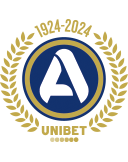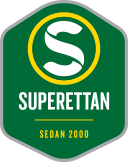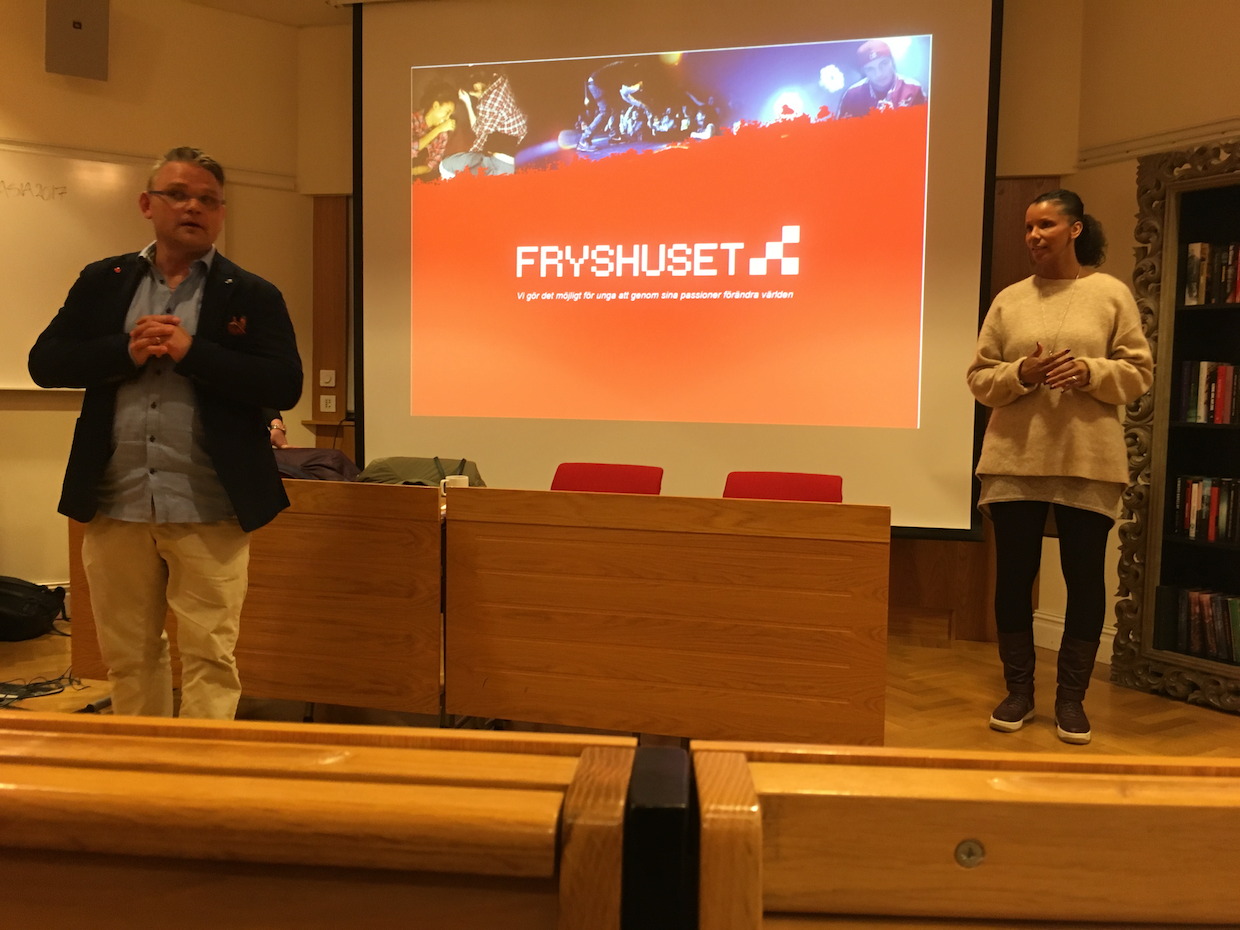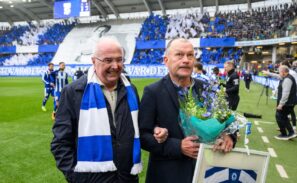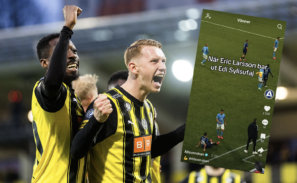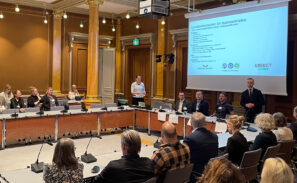All behaviours and all decisions a person takes comes with a consequence. The world of football is no exception. For one night, the entire second division club Varbergs BoIS gathered to get closer to each other by talking about the code of conduct of the league.
”It is important that we can work together the first team players and the youth players. The youngsters can see that the first team players are normal people just as anyone else” says Beatrice Clarke, responsible for the education.
The whole idea of letting youth players to interact with the first team players was well received and is of great benefit for both sides. The first team players had to be in charge and take responsibility for the group while the youth players hopefully was inspired by seeing that the step to the first team may not be as big as one thought. Together, the players of all ages in theory had to solve different situations that may arise on a football pitch and the consequences of the different behaviours that the situations develop, and how they can be avoided. The participation and outcome of the conversation was good.
Martin Strömberg, Marketing Manager at Varberg’s BoIS:
”It de-dramatizes the situation that our young players can interact with the first team players. Because we are a small club, we must also work like this more often. It is important to show the youngsters that there is a chance to become a first team player.”
The code of conduct is the value of Swedish elite football, where everyone is welcome regardless of origin and where the football wants an environment where new role models are created. All 32 clubs in the two top Swedish leagues have already signed the Code of Conduct and at this stage, the partner company Fryshuset visits each and every club and their first team players as well as their youth players for the second consecutive year with the task of implement the Code of Conduct. Fryshuset says that during previous visits there have been young players talking about how hard it is to manage both school and their football practice and that it is only when a person talks about it you can start do something about it.
”It is important to be inspired on these issues and more importantly to implement these in everyday life. The better you know each other, the more you can support each other in different situations on and of the pitch. It benefits the team and the whole club. The Swedish elite football creates good role models, but also good citizens. At this stage we go from inspiration and awareness to implementation in the everyday life, says Beatrice Clarke, who, together with Linda Skogsby, completed the education in Varberg, and continues.
”Mostly football is about love, respect, passion, but also anger and frustration. There are situations as in the everyday life. Then you react with a behavior. A behavior that will come with a consequence. In a sharp mode, you do not react with your head, we are all emotional people. You can practice how to behave, different situations where you can develop to get better. This is done by working more close with each other.
The second year’s tour is almost complete
Fryshuset is almost finished with the second year of the tour where they visit all clubs in Allsvenskan and the Superettan. Varbergs BoIS was one of the last stops on the trip and about 80 players, leaders, boys and girls from the first teams, U19, U17 and U15 gathered at the Stadshotellet in Varberg to further develop their own values and to implement the common code of conduct of the elite football.
Beatrice Clarke is satisfied:
”I think the second year has been a success. It has been a fantastic development since last year and this year we are trying to get more values based on situations that occur in the players’ everyday lives, but also for the different parts of the club. It may happen at the office too. Everything becomes more understandable if you connect it more to everyday life. That behaviour comes with a consequence.”
In Varberg, the Superettan club appreciates the value-based work and Fryshuset lecture. Varbergs BoIS became a second division team in Superettan in 2012 but it is only now that the organization begins to grow into what it takes to be an elite association.
Martin Strömberg, Marketing Manager at Varberg’s BoIS:
”You do not become an elite club off the pitch the first year. I think it is important to attend these code of conduct evenings. Most often, these kind of gatherings are not a club priority but I think it is important to see the whole picture. It is important we get the same mindset throughout the whole club”.
All clubs in Swedish elite clubs have different conditions to work with the Code of Conduct. The 32 clubs comes from different parts of the country, are not equally big and they have different logistic challenges to take into account. Something, apart from the football, which unites the clubs, is a common value base.
”Economy is not a necessary factor here, it is all about imagination to implement these questions. For example, complete each practice with a few minutes of value lecture. The more naturally it will be all the better”, says Beatrice Clarke.
Beatrice also says that she notices a difference in the clubs, this is the second year with value-based conversations.
”A lot has happened. Now the clubs knows more what it is all about. Players moves between clubs and the group process changes all the time. Then it is important for the new player to get into the group and feel good. Everyone comes into a group of different driving forces and the value base is our base, our guiding document, what keeps us together and how we are meeting each other, how we behave”
Fryshuset:
The world’s largest organization for children and young people. Fryshuset creates communities where young people are seen, heard and counted. For this reason, about 50 different activities are being carried out in the areas; Youth Culture, Divorce and Future, Schools, and Work and Entrepreneurship.
Facts Code of Conduct:
All clubs in Allsvenskan and Superettan wrote for the 2014 season on the Swedish Football Code of Conduct. A document where the clubs tell them to work together for a football there:
- Everyone feels welcome, regardless of sex, sexual orientation, religion, ethnicity or nationality
- Everyone feels safe and secure to attend our events
- We work together to reclaim the positive atmosphere of our stands
- We all show respect for each other, regardless of whether it concerns the game, players, judges, leaders, employees, elected representatives and the audience.
For us, football is about justice, respect, dignity, passion and joy – and we act to show it.

